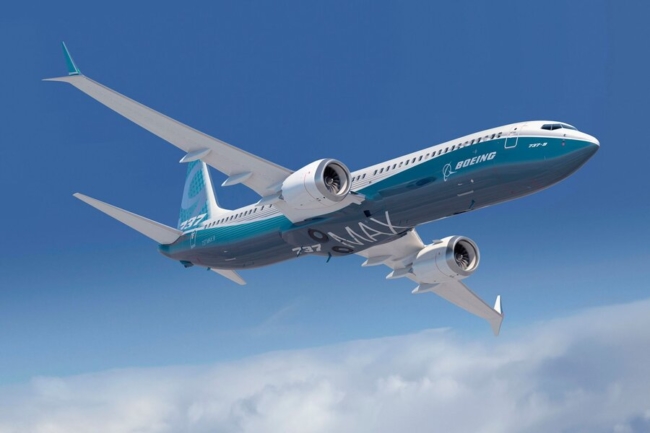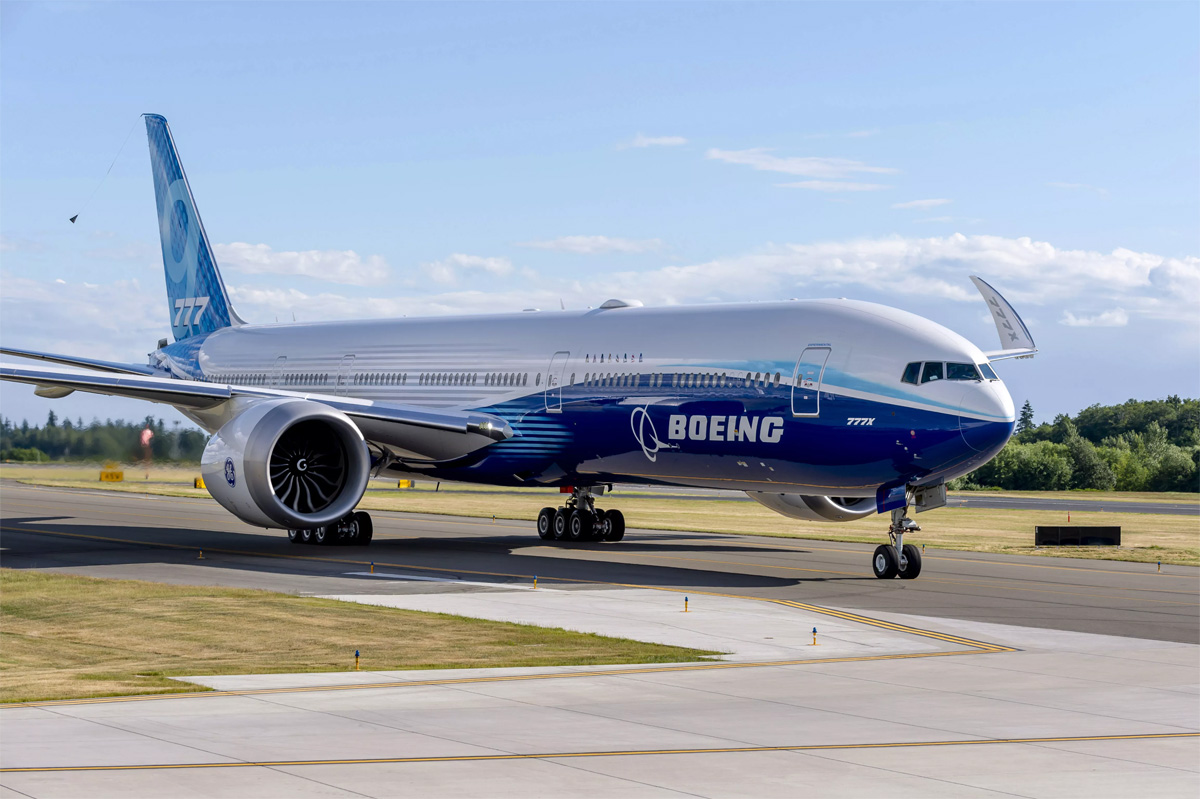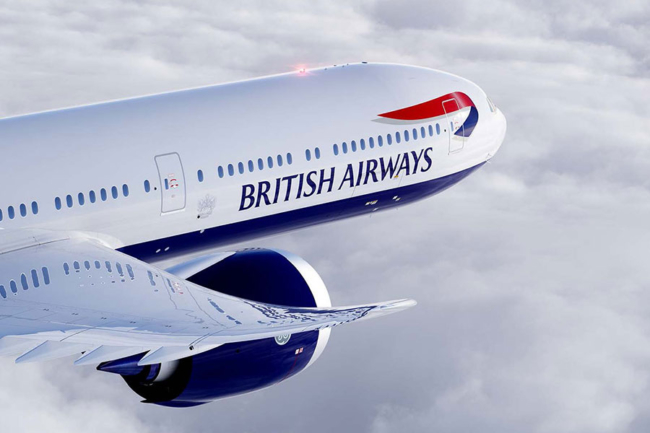How has British Airways been hit by Boeing’s 777X and 787 problems?
Links on Head for Points may support the site by paying a commission. See here for all partner links.
If you thought Boeing’s woes were over now that the 737MAX is back in the skies, think again. The aircraft manufacturer is experiencing something of a horrendum decennium as it deals with delays and faults on virtually all of its aircraft types.
With the end of 747-8 production last year, Boeing now manufactures three aircraft families:
- The 737 and 737MAX, its narrow-body workhorse
- The 787 Dreamliner, the mid-size long haul aircraft
- The 777, its large wide-body and the largest commercial twin-jet in existence, soon to get even bigger with the launch of the 777X

All three programs have faced issues on and off since at least 2018 and there appears to be little end in sight until at least 2025.
Whilst deliveries of the 737MAX restarted in December 2020, 787 deliveries were suspended in October 2020. A handful were handed over to airlines in spring 2021 before deliveries were once again suspended.
At the same time, Boeing’s next big aircraft project – effectively ‘MAX’ing the 777 twin aisle – has faced numerous delays. This aircraft won’t start commercial operations until 2025 at the earliest, five years later than originally planned.
Boeing 777X delayed until 2025
As the biggest twin-engine aircraft available, the 777 is a workhorse for virtually all major airlines. The 777X, a stretched and re-winged 777 with first-of-its-kind folding wingtips, is likely to follow in the same vein. It is now the largest commercial aircraft available to order given that the 747-8 and A380 have ceased production.
Despite this, it hasn’t exactly flown off the shelves and has managed just over 300 orders so far. By comparison, the 787 had over 1,000 orders in the decade after launch.
The big news this week is that Boeing has quietly delayed commercial entry for the 777X again, this time to 2025.
When it was first launched in 2013, the 777X was due to enter service in 2020 with Lufthansa and Emirates, both of whom were early customers. Since order books opened the aircraft has been delayed numerous times:
- initially to 2021 due to problems faced by the GE engines being used
- …. then to 2022 because of reduced demand during covid
- last year, the FAA said it could not certify the aircraft until 2023 at the earliest due to various issues including software delays
- Emirates CEO Tim Clark said numerous times in 2021 he isn’t expecting deliveries until early 2024 at the earliest
Reuters is now reporting that the 777X won’t make its debut until early 2025, and this date has also been backed up by Tim Clark.
Part of the problem is that the 777X is the first major airplane to be certified following the 737MAX crisis. It is facing significantly increased regulatory scrutiny from both the US FAA and Europe’s EASA.
The 737 MAX 10 programme is also under pressure. A US law introduced in 2020 mandates a December 2022 deadline for new cockpit safety standards to be introduced, and this work has not yet been completed.
The issue is a major headache for airlines, particularly Emirates which is increasingly unhappy with the delays. Emirates has 115 x 777X planes on order to replace ageing aircraft and eventually the A380 fleet. It is now expecting a capacity crunch in the middle of this decade that will force it to extend the life of 80 A380 and 40-50 older 777s by six to ten years.
The delays also mean that Lufthansa’s much vaunted new 777X business class cabin, which was a “key factor” in Skytrax awarding the airline 5-Star status, will enter service seven years after the award was granted. The seat will appear on select A350s and 787s before it appears on a 777X. (Yes, Skytrax can be ‘persuaded’ to give your airline 5-Star status to reflect seats which don’t actually exist …..)
787 deliveries have also been suspended
The 787 project is similarly beleaguered. After getting off to a rocky start – remember the battery fires? – Boeing did manage to ramp up production and start regular deliveries.
However, the 787 has been plagued by questions over quality control since its launch. It spurred a 2014 investigation by Al Jazeera that culminated in a 45 minute documentary called ‘Broken Dreams’ which you can watch on YouTube here.
Boeing’s Charleston factory has received particularly scrutiny for its shoddy production quality that has left tools and other debris within the aircraft frame. It lead to Qatar Airways refusing to accept delivery of any Charleston-built planes. A later New York Times investigation also found reports of staff being pressured not to report violations.
In September 2020 the FAA launched an investigation into quality control lapses and suspended all 787 deliveries after Boeing grounded eight aircraft. The majority of the in-service fleet continues to fly.
Initially, the problem involved ‘skin flatness’ where the carbon fibre fuselage pieces were joined. Deliveries then restarted – briefly – in Spring 2021 before the pause button was hit again after reports of fuselage problems. No 787s have been delivered since, down from a historic production rate of 12 per month.
There is light at the end of the tunnel. Reuters is reporting that Boeing has informed airlines and suppliers that it expects to be able to resume 787 deliveries in the second half of the year. Boeing has over a hundred 787s that are currently awaiting delivery, although it’s not clear how many of these will need further inspection and remedial work.
Airlines are just as keen for deliveries to restart in order to mitigate a capacity crunch. Both United and American Airlines have had to cut capacity and suspend routes as anticipated aircraft arrivals have been delayed.
United was expecting eight 787 deliveries in 2021 but has so far received none, whilst American Airlines has cancelled or reduced flights on several key routes.
What does this mean for British Airways?
British Airways hasn’t remained unscathed by Boeing’s problems. The most visible impact is a raft of missing 787-10 deliveries.
Boeing completed delivery of 30 x 787-8 and 787-9 aircraft to BA between 2013 and 2018, which remain in operation.
In early 2020, BA received its first two 787-10s, the largest variant and the first of twelve on order. Unfortunately, it has not received any more since then. A further five have already been manufactured and are currently in storage at Boeing due to the delivery delays.
BA is also a customer for the 777X, with 18 x 777-9s on order. Initially, it was expecting to receive these from this year but these are now not likely until 2025 or 2026. This will also delay the launch of BA’s next-generation First Class seat, due to debut on the 777-9.
Fortunately, BA has taken delivery of another four Airbus A350s in the past two months, taking its fleet to 12, which is helping to plug the capacity gap.
Capacity issues at BA are unlikely to rear their head until 2023 or 2024. Right now, BA is struggling to recruit enough cabin crew to operate its existing fleet. With BA’s 747 fleet retired in 2020 rather than phased out by 2025 as per the original plan it will remain a significantly smaller airline post pandemic for some years to come.
PS. If you are not a regular Head for Points visitor, why not sign up for our FREE weekly or daily newsletters? They are full of the latest Avios, airline, hotel and credit card points news and will help you travel better.
To join our 70,000 free subscribers, click the button below or visit this page of the site to find out more. Thank you.

How to earn Avios from UK credit cards (August 2025)
As a reminder, there are various ways of earning Avios points from UK credit cards. Many cards also have generous sign-up bonuses!
In February 2022, Barclaycard launched two exciting new Barclaycard Avios Mastercard cards with a bonus of up to 25,000 Avios. You can apply here.
You qualify for the bonus on these cards even if you have a British Airways American Express card:

Barclaycard Avios Plus Mastercard
Get 25,000 Avios for signing up and an upgrade voucher at £10,000 Read our full review

Barclaycard Avios Mastercard
Get 5,000 Avios for signing up and an upgrade voucher at £20,000 Read our full review
There are two official British Airways American Express cards with attractive sign-up bonuses:

British Airways American Express Premium Plus Card
30,000 Avios and the famous annual Companion Voucher voucher Read our full review

British Airways American Express Credit Card
5,000 Avios for signing up and an Economy 2-4-1 voucher for spending £15,000 Read our full review
You can also get generous sign-up bonuses by applying for American Express cards which earn Membership Rewards points. These points convert at 1:1 into Avios.

American Express Preferred Rewards Gold Credit Card
Your best beginner’s card – 20,000 points, FREE for a year & four airport lounge passes Read our full review

The Platinum Card from American Express
50,000 bonus points and great travel benefits – for a large fee Read our full review
Run your own business?
We recommend Capital on Tap for limited companies. You earn points worth 0.8 Avios per £1 on the FREE standard card and 1 Avios per £1 on the Pro card. Capital on Tap cards also have no FX fees.

Capital on Tap Visa
NO annual fee, NO FX fees and points worth 0.8 Avios per £1 Read our full review

Capital on Tap Pro Visa
10,500 points (=10,500 Avios) plus good benefits Read our full review
There is also a British Airways American Express card for small businesses:

British Airways American Express Accelerating Business Card
30,000 Avios sign-up bonus – plus annual bonuses of up to 30,000 Avios Read our full review
There are also generous bonuses on the two American Express Business cards, with the points converting at 1:1 into Avios. These cards are open to sole traders as well as limited companies.

The American Express Business Platinum Card
50,000 points when you sign-up and an annual £200 Amex Travel credit Read our full review

The American Express Business Gold Card
20,000 points sign-up bonus and FREE for a year Read our full review
Click here to read our detailed summary of all UK credit cards which earn Avios. This includes both personal and small business cards.





 Rhys
Rhys 





Comments (57)